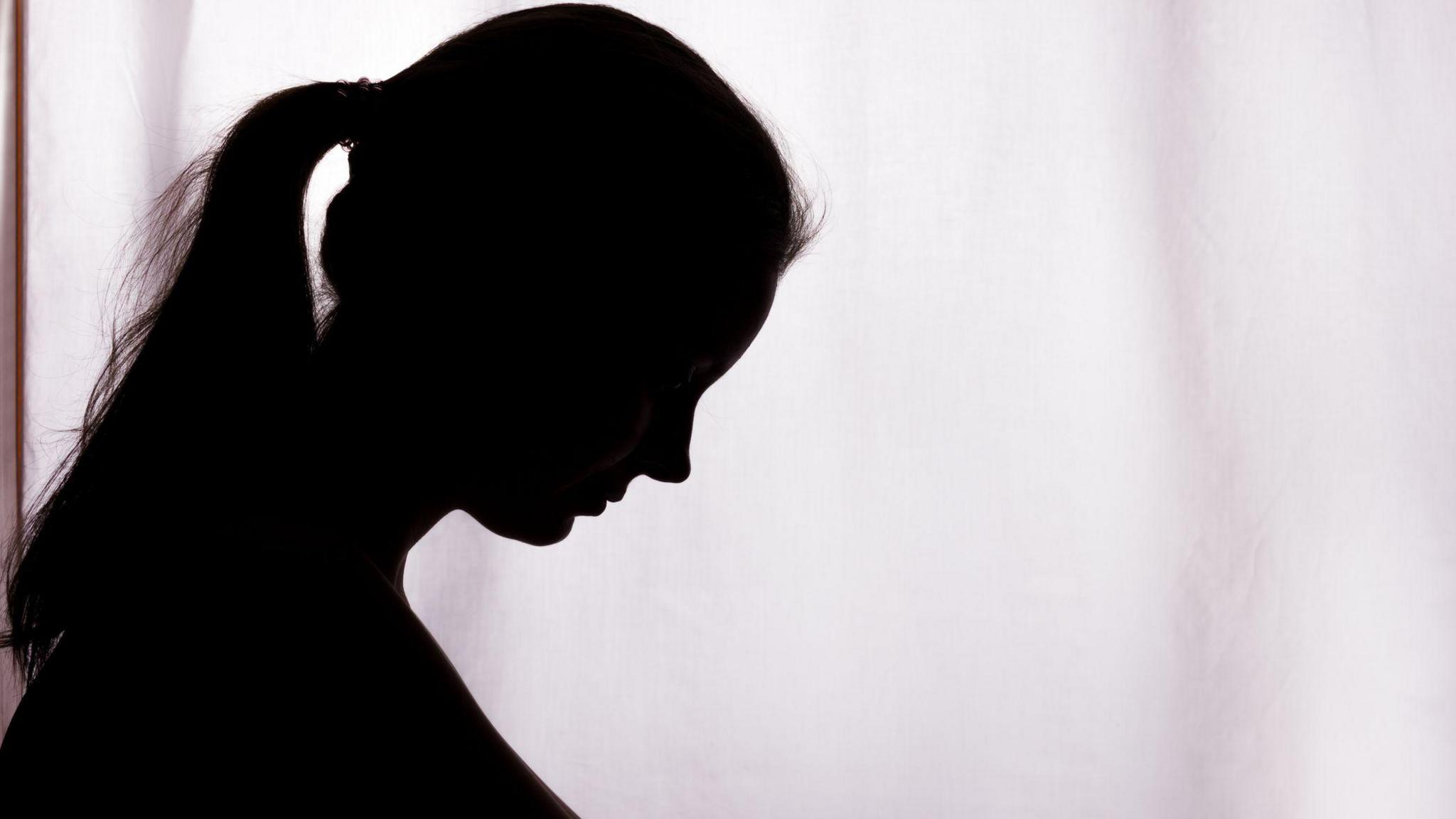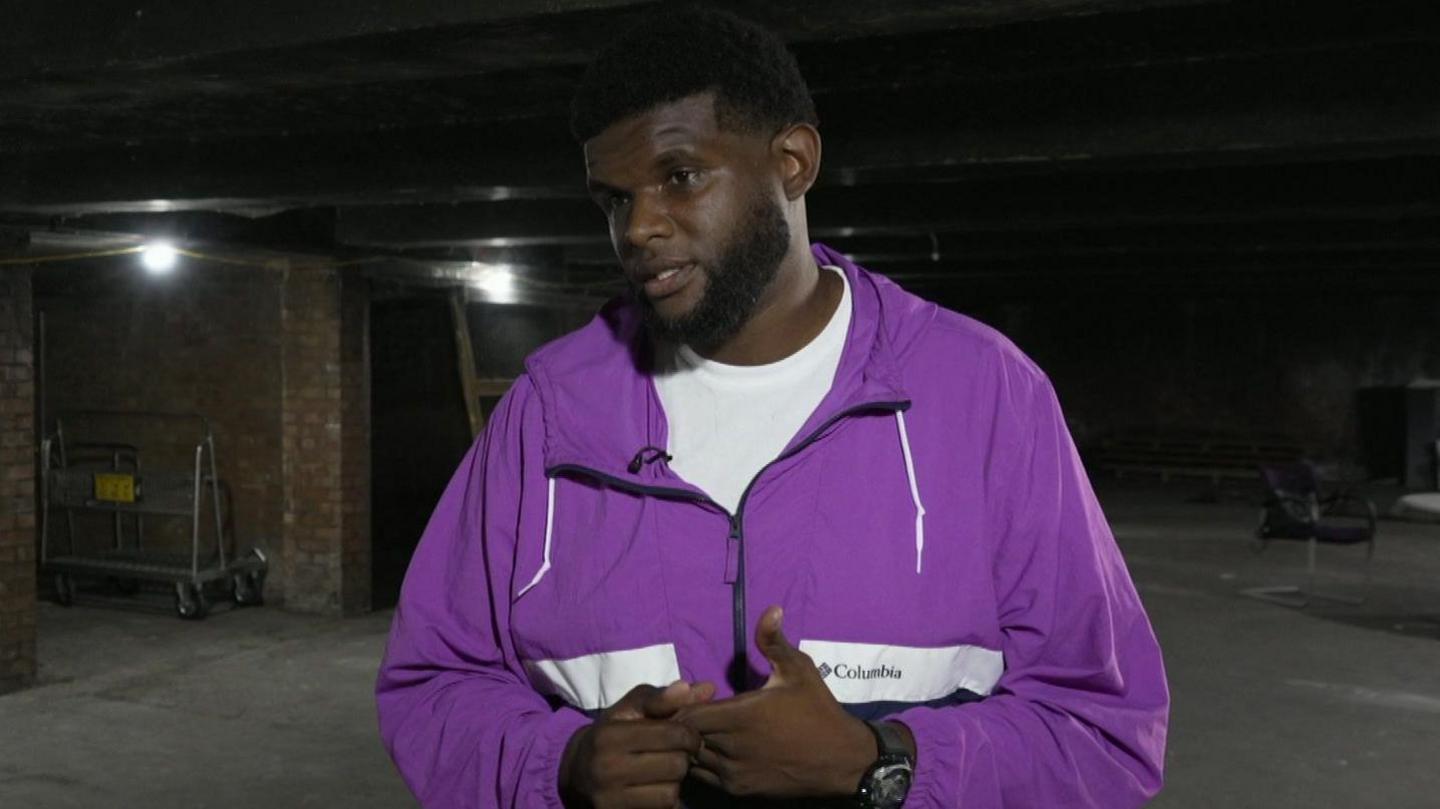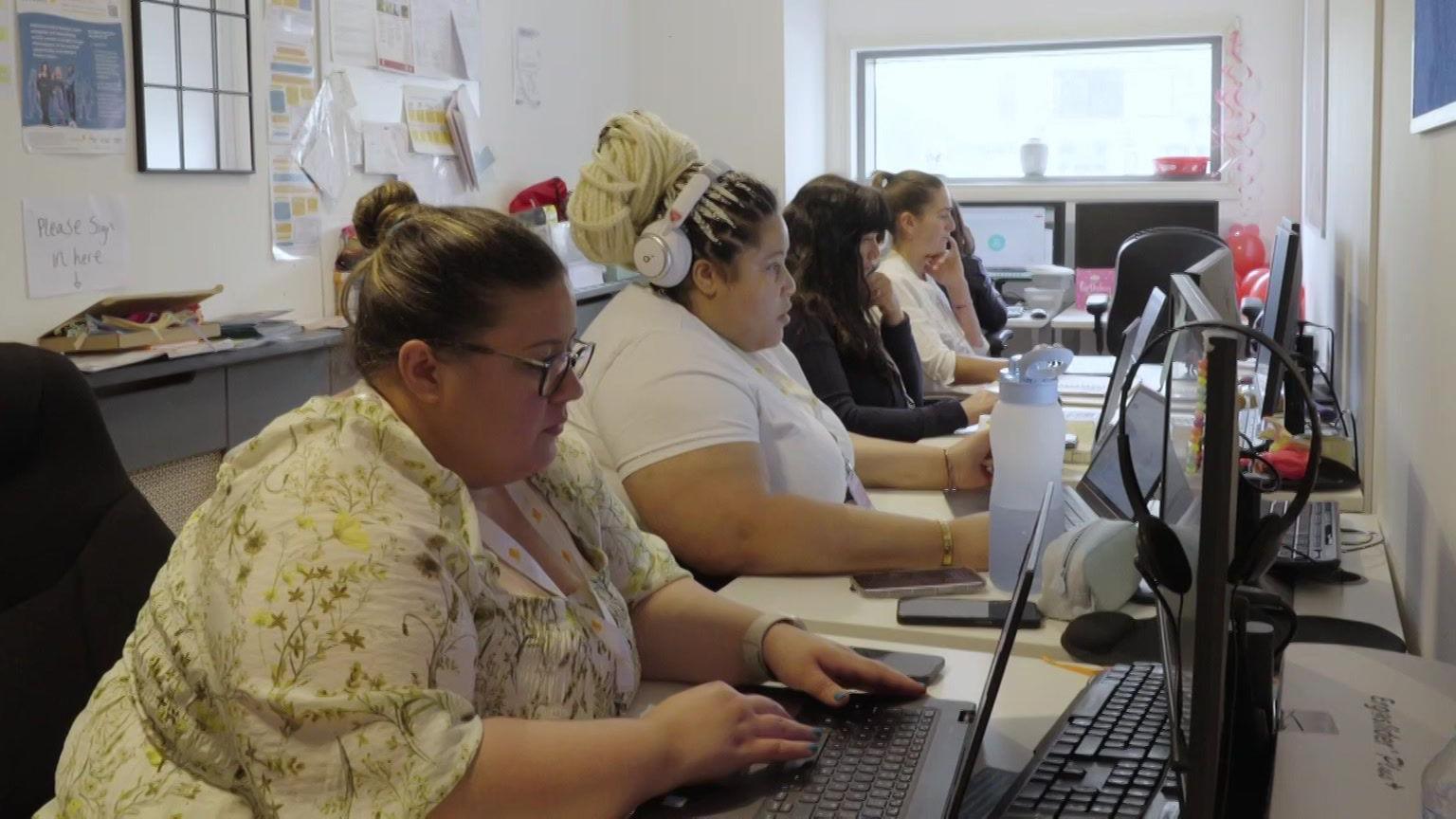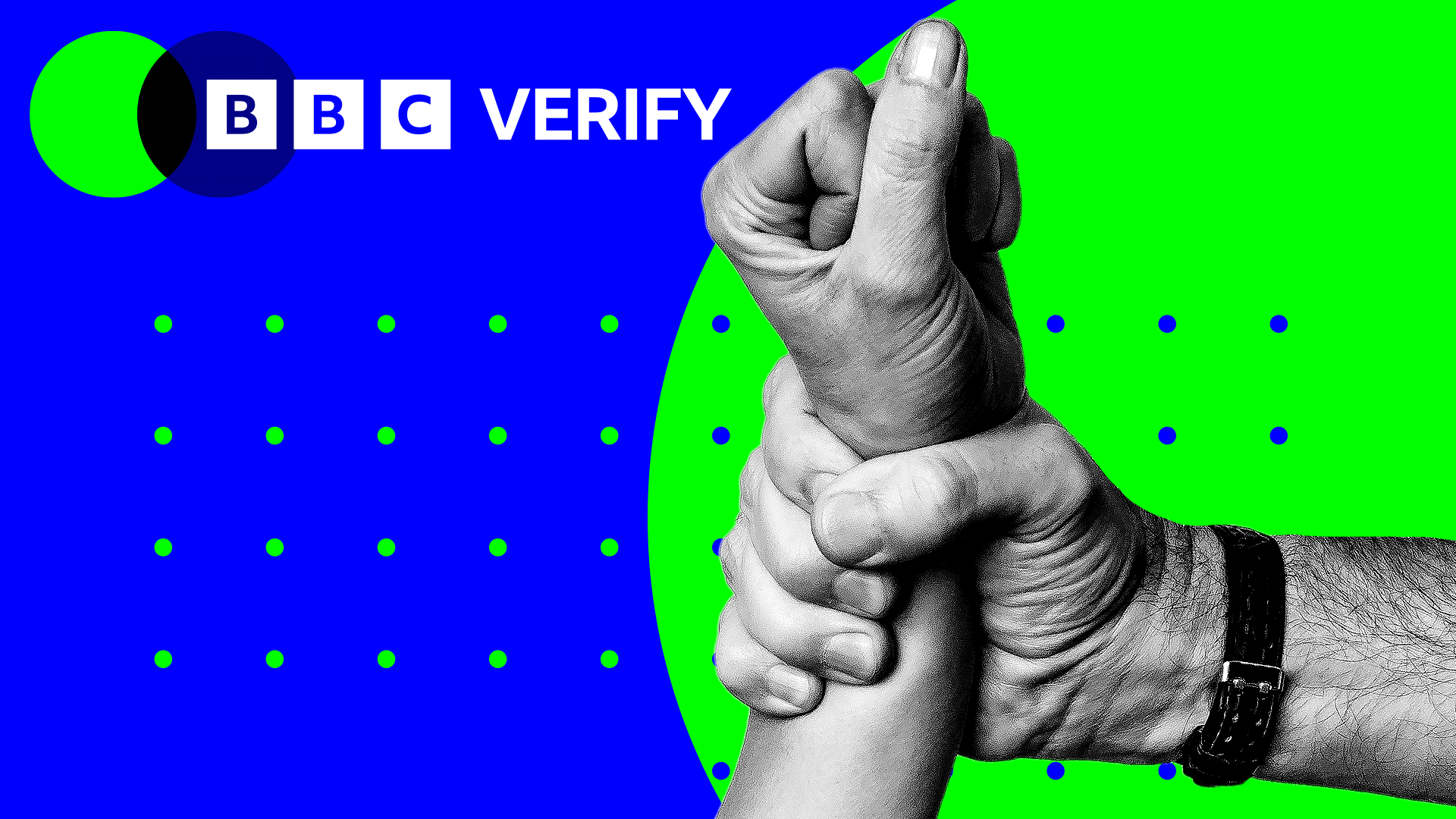Abuse victim 'left home with just nappies and toys'

Some support for domestic abuse victims is not available for people in employment, a charity says
- Published
When someone is forced to flee an abusive home, every second matters.
There is no time to pack a suitcase - often survivors escape with only what they can grab in the moment, if anything at all.
For Emma, not her real name, a brief window of safety appeared when a friend dropped by.
Within minutes, she scooped up her child's belongings, stuffed nappies and a few toys into bin bags, and got on a bus. In the chaos, she forgot almost everything of her own.
"You're not thinking straight," she told BBC London.
"I took toys for my child, I took nappies, and clothes to last a few days. That was it."
Emma had endured years of domestic abuse at the hands of her ex-partner, a man who not only harmed their dog but made threats against their child.
"He'd say he was going to punch our child in the face or throw him off a balcony," she said.
"Then he started kicking the dog. I knew we were next."
Months later, Emma was allowed to return to her former home to collect her things.
But living temporarily with a friend, she had nowhere to keep them.
With no other option, she began paying more than £300 a month for storage, a cost that quickly pushed her into debt.
Thousands of people across the UK flee abusive relationships every year, often leaving their entire lives behind.
This includes clothes, keepsakes, furniture and family photographs.
'Bring comfort'
While some domestic abuse charities offer limited storage space or help survivors access small grants for storage, these services are inconsistent and often underfunded.
Many refuges are already at capacity and have little room to accommodate more than the bare essentials.
Julia Dwyer, head of services at Refuge, the largest domestic abuse organisation in the UK, said the loss of personal belongings adds further trauma to an already devastating experience.
She said: "While some survivors can store items with friends or family, that is not always a safe or viable option.
"Our refuges are typically full and have very limited space for belongings that might bring comfort or a sense of normality.
"Sustainable funding is urgently needed to meet this hidden but crucial need."
If you have been affected by this story or would like support then you can find organisations which offer help and information at the BBC Action Line.
In north London, one man is stepping in to help address this issue.
Verral Paul-Walcott, 35, from Tottenham, is a community organiser who originally ran a mobile support group delivering food and supplies to rough sleepers across the capital.

Mr Verral runs a secure storage site designed specifically for abuse survivors
Last year he started renting a car park that had been derelict for 30 years from a London council. The space was initially going to be a store for tents and sleeping bags.
But after being approached by a homeless domestic abuse survivor in desperate need of somewhere to store her belongings, he changed course.
"If someone is fleeing their abuser, the abuser should not win again," said Mr Verral. "If you leave with nothing, you have just lost again."
Drawing on his own childhood experience of homelessness after escaping domestic violence, Mr Verral now runs a secure storage site designed specifically for abuse survivors.
The location is kept confidential to protect those who use it.
The site is being transformed into a safe, lockable storage facility for up to 37 families. Work is still ongoing, but three survivors are already using the space.
'Rebuild with dignity'
Mr Verral said: "When I was first handed the keys, there was overflowing sewage, no lighting, no water. There were glass bottles from the 1970s. That is how long it had been left."
With help from local college students studying plumbing, electrics and carpentry, the car park is slowly being brought up to standard.
The project is mainly self-funded but has had community and corporate donations. He has deliberately avoided registering as a charity.
"I do not want red tape to slow me down. People need help now."
As domestic abuse support services across the UK continue to face financial strain, grassroots efforts like Mr Verral's can often provide a vital safety net.
He said: "No one should have to start life over again from nothing. Everyone deserves to rebuild with dignity, not just emotionally but practically too."
Listen to the best of BBC Radio London on Sounds and follow BBC London on Facebook, external, X, external and Instagram, external. Send your story ideas to hello.bbclondon@bbc.co.uk, external
Related topics
Related stories
- Published15 June

